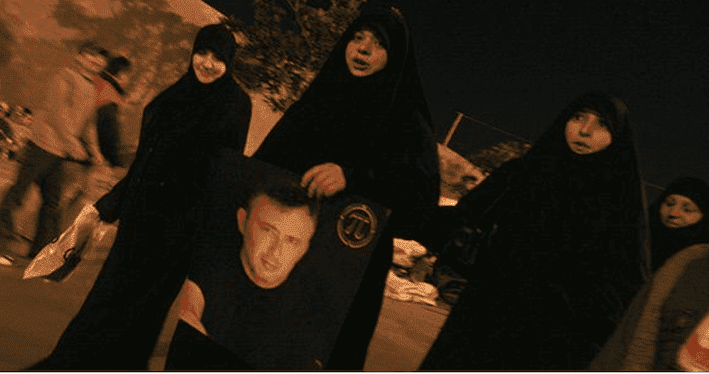What Happened?
In a speech on Monday, Hezbollah’s secretary general, Hassan Nasrallah, for the first time publicly declared his support for Suleiman Franjieh as Lebanon’s next president. This comes after months during which Hezbollah had quietly signaled its backing for Franjieh, without ever formalizing this, perhaps fearing that by doing so the party would set him up as a political target and undermine his chances.
Nasrallah stated, “The natural candidate whom Hezbollah backs in the presidential election, and who has specifications we are looking for, is the leader of the Marada Movement, the former minister Suleiman Franjieh.” Nasrallah also addressed Hezbollah’s erstwhile ally, the Free Patriotic Movement (FPM), led by Gebran Bassil, who opposes Franjieh’s election, by saying: “When we announce our support for Suleiman Franjieh, this is not a breach of the [2006] understanding [with the FPM], as each side has the freedom to choose the candidate that suits him.”
The conciliatory comments to the FPM were aimed at ensuring that its parliamentarians would not boycott the session to choose a president. According to the constitution, a two-thirds majority is needed to elect a president in a first round of voting, after which an absolute majority of 65 parliamentarians is required. However, for the second round to take place, there needs to be a quorum. Hezbollah knows that if the FPM refuses to attend a second round, along with two other major Christian blocs, one led by the Lebanese Forces and the other by the Kataeb Party, this could spark a wider move to deny a quorum.
Why Is It Important?
Hezbollah was under some pressure to take an official position with regard to Franjieh, because his credibility as a candidate was being steadily eroded by the party’s silence. At the same time, Hezbollah may be taking a risk, because his candidacy has now become an issue of potential negotiation. Just as Hezbollah’s foes had backed Michel Mouawad—a rival of Franjieh, and like him a Maronite Christian from Zghorta—knowing that in doing so they might have to drop him in talks over a compromise candidate, Hezbollah has also potentially opened the door to negotiations by naming its favorite. While the party may have assurances that it has enough votes to secure a Franjieh victory, for now the numbers are unclear.
One thing to watch, for instance, is whether the bloc controlled by the Druze leader Walid Joumblatt will endorse Franjieh. Without Joumblatt’s backing, Franjieh’s chances will be negligible, and a recent initiative by Joumblatt involving the presidency may have been aimed at getting that point across. At the same time, it is widely understood that Saudi Arabia opposes Franjieh’s election, seeing him as a Hezbollah ally, and it is far from certain that Joumblatt would risk damaging his relations with the kingdom by ordering his parliamentarians to vote for him.
Another factor that needs to be determined is whether Hezbollah and Franjieh have enough votes from within the broader FPM bloc to tip the balance in Franjieh’s favor and give him a measure of Christian legitimacy (the FPM, Lebanese Forces, and Kataeb blocs are all mainly Christian, while Lebanon’s president is a Maronite Christian). For example, a former minister, Elias Bou Saab, who was appointed in the past from the FPM’s quota in the cabinet, has indicated that he might vote for Franjieh. The Armenian Tashnag Party, which is also part of the FPM-led bloc, and which has close ties to Iran and Syria, both of which appear to support Franjieh, might also conceivably abandon Bassil and vote for Franjieh.
What Are the Implications for the Future?
Some have suggested that if Nasrallah declared his support for Franjieh, this meant he had enough votes to bring him to office. Perhaps, although one has to repeat that Franjieh’s position was becoming untenable because the party had failed to endorse him. Time will tell which interpretation is the more correct.
One certainty, however, is that Franjieh is far below the expectations of both the international community and many Arab countries. The Saudis in particular would consider his election a provocation, ensuring that the Gulf states will keep their distance from Lebanon in the years to come. If the Saudis are not on board, then the Qataris, who can mediate with the Iranians and Hezbollah, are also unlikely to assist the country financially, as they allegedly promised recently.
At the same time, many countries, notably the United States and France, are looking for a president who can drive economic reform and who does not have ties to the country’s corrupt political leadership. In other words, someone who is precisely the opposite of Franjieh. Until now, not one of the major reforms Lebanon agreed with the International Monetary Fund (IMF) has been implemented voluntarily, and a Franjieh presidency would further convince the IMF and the World Bank that Lebanon is not serious about adopting measures to alleviate its economic crisis.
Hezbollah must be very careful. If Franjieh is elected with a large majority of Muslim votes, against the preferences of major Christian parliamentary blocs, this will trigger a major communal backlash. Christians will be united in denouncing the Muslim parties for imposing their candidate on a community that otherwise rejects Franjieh. This would make it very difficult for Franjieh to govern, as he would face the combined assaults of the FPM, the Lebanese Forces, and the Kataeb Party, forcing him to rely on Hezbollah for his political survival. Lebanon would be brought to a standstill, exacerbating the already disastrous economic situation and bolstering Christian resentment of Hezbollah.

